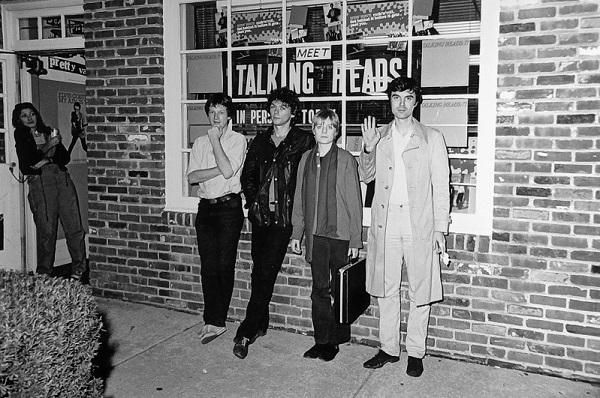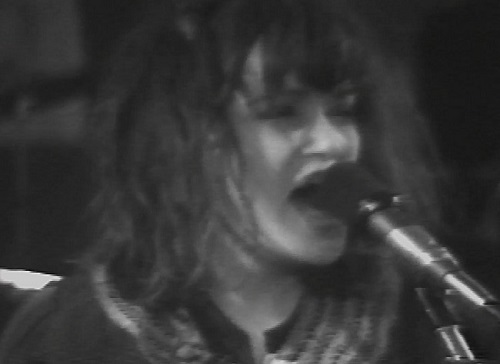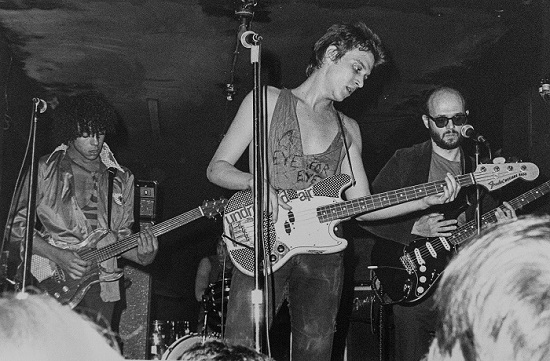
Last Updated: 12/12/25


Since 1992, the Secret Cinema has been the Philadelphia area’s premiere floating repertory cinema series, bringing hundreds of unique programs to nightclubs, bars, coffee houses, museums, open fields, colleges, art galleries, bookstores, and sometimes even theaters and film festivals. Drawing on its own large private film archive (as well as other collections), the Secret Cinema attempts to explore the uncharted territory and the genres that fall between the cracks, with programs devoted to educational and industrial films, cult and exploitation features, cartoons, rare television, local history, home movies, erotic films, politically incorrect material, and the odd Hollywood classic. As long as it exists on real celluloid, that is—Secret Cinema screenings never use video/digital projection. While mainly based in Philadelphia, the Secret Cinema has also brought programming to other cities and countries.
There will be no more Secret Cinema screenings for the rest of 2025, but we're busy planning many fun events for next year. Meanwhile, allow me (Secret Cinema main person Jay Schwartz) to tell you about three other things happening before the year is over…
One of these events is in fact a screening. But I say "other" because, while they're very personal to me (including a work I actually made myself) it is not a "film as film" projection -- and that is what Secret Cinema has always been, for a nearly full 33 years.
That screening, and the other two things highlighted here, are all repeats from earlier this year (and are being repeated by popular demand!). They are…

Talking Heads after in-store appearance at Plastic Fantastic record store, Bryn Mawr, 10/28/77. © Jay Schwartz 2025
Now through December 31
Photography show:
Highlights from I Belonged to the Blank Generation (and three other photography shows)
The SPACE Art Gallery
749 S. 8th Street, Philadelphia
215-279-7145
Admission: FREE
(Contact gallery for hours)
Friday, December 12
6:30 pm
Artist talk:
For the I Belonged to the Blank Generation photography show, with Jay Schwartz
Admission: FREE
The SPACE Art Gallery (see above)

Exene from X in Philadelphia Seen. © Jay Schwartz 2025
Wednesday, December 17
7:00 pm
Screening:
I Belonged to the Blank Generation: Philly's Punk/New Wave Scene on Screen (Encore Edition)
Lightbox Film Center
Bok Auditorium
800 Mifflin St, Philadelphia
215-693-7089
Admission: $14, $12 students/seniors
Again, the screening is a video-based screening. All Secret Cinema screenings use projected film. They always have, since 1992, and just so to keep that name pure, we will not label this video screening a Secret Cinema event.
The screening needs to use projected digital video, however, because most of the material is "video born," meaning it was shot, edited and released (or broadcast) by electronic means. We're still committed to keeping projected film alive -- and in fact spend a lot of money to store and maintain a rather large collection of 16mm and 35mm (and even 8mm) film prints…so we definitely plan to keep sharing them with the audience we've built over 33+ years.
In an earlier life, I was a music journalist, photographer and publicist, working in the early punk rock/new wave music scene of Philadelphia. My photos included images of early appearances by such legends as The Ramones, The Talking Heads, The Jam, Gang of Four, The B-52's, Richard Hell & the Voidoids, Blondie and many, many others. They were taken at local venues like The Hot Club, Stars, Artemis, The Tower Theater, and Emerald City, and include shots of performances, backstage scenes, record store appearances and more. While these photographs were sometimes published in magazines like New York Rocker, Trouser Press, and assorted local publications, most of the images remained unseen by the general public.

Richard Hell and the Voidoids at the Hot Club, 10/17/77. © Jay Schwartz 2025
Until 2025! The SPACE Art Gallery in Bella Vista is again showing these photos (newly printed as all-analog photochemical enlargements). I Belonged to the Blank Generation: Silver Gelatin Photographs of the Punk/New Wave Scene in Philadelphia 1977-1980 will be on display from now through December 31. The photos are printed in a limited edition of five copies, and may be purchased at the gallery. Check their website for gallery hours.
And then on Wednesday, December 17, the Lightbox Film Center will screen (for the second and probably last time) a unique program of video material created during the first years of Philadelphia's punk/new wave music scene. It's called I Belonged to the Blank Generation: Philly's Punk/New Wave Scene on Screen. The centerpiece will be a previously unseen 25-minute documentary shot at Philly's Artemis nightclub, featuring very early footage of L.A. band X, storied WXPN d.j. Lee Paris, and club owner David Carroll. Also shown will be Super 8 footage of the Cramps at the Hot Club, rock videos and TV appearances from early local bands, and more. The video shown will span the years 1977 through 1980 -- the period when Philadelphia's legendary venue the Hot Club dominated punk and new wave music locally.
Preceding the screening, there will be a projected slide show of Jay Schwartz's photography of this same bygone world, featuring highlights of the I Belonged to the Blank Generation photo show. This will be accompanied by a live narration from Schwartz.
I Belonged to the Blank Generation: Philly's Punk/New Wave Scene on Screen will include:

Lee Paris in Philadelphia Seen. © Jay Schwartz 2025
Philadelphia Seen (November 1978) - Jay Schwartz's short documentary look at Philly's underground music scene is surely the earliest local project of its kind. It includes live performances captured at the intimate Artemis nightclub featuring pioneering local punk band the Jags, and, on their first national tour, soon-to-be L.A. stars X. Also includes interviews with WXPN disk jockey Lee Paris, and legendary club owner David Carroll. The black & white footage was shot using the Sony Portapak video system.
The Boneheads Film (1979) - Filmmaker Richard "Jiggs" Briggs and the Boneheads were students together at the Philadelphia College of Art (later called University of the Arts), and collaborated on this film after graduation. It shows a much grittier Center City landscape, in and around the band's rented rehearsal space at 8th and South Streets. They perform "Adam and Eve" and "Out of Limits," showing their blend of punk rock and '60s surf music. A few years later, most of the members evolved into popular art rock band Bunnydrums, releasing records here and abroad, and touring Japan and Europe.
Super 8mm films (1977-79) - Todd Shuster, while in punk band the Jags (see Philadelphia Seen, above), used a home movie camera to shoot silent film footage of a few concerts he attended. Captured in Kodachrome are Patti Smith and David Johansen on stage at the Tower Theatre, the Cramps on stage at the Hot Club (including some candid clowning around backstage by guitarist Bryan Gregory), and Kenn Kweder and the Secret Kidds.
Newsfilm clips (1977) - A couple of short newsfilm clips -- one showing record buyers at the Plastic Fantastic record store (in their original Bryn Mawr location), telling a news reporter why they like punk rock. Then there is a short clip of CBGB stars the Sic Fucks, on stage at Philly's Hot Club (why would a TV station choose to film a band whose name they could not pronounce on the air?).
Plus fun TV appearances with local groups The Shades, The Stick Men, and Crash Course in Science, and onetime Hot Club bartender Joey Wilson in a rock video aired on the pre-MTV syndicated show "Rock World"!
NEW! 2008 interview with Secret Cinema's Jay Schwartz from an academic journal
Channel 29 news piece on Secret Cinema from 1999!
Secret Cinema 1999 Annual Report
Secret Cinema 1998 Annual Report
Secret Cinema 1997 Annual Report
Information about the 1998 Secret Cinema "Class Trip" to the Syracuse Cinefest